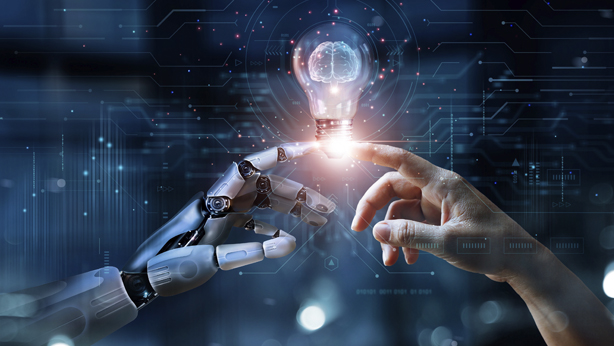Artificial intelligence and its future implications
Artificial intelligence and its future implications: This topic explores the current state of artificial intelligence (AI), its potential future developments, and the potential impact of AI on various industries and society as a whole.
Artificial intelligence (AI) has become an increasingly important topic in recent years as advances in technology have made it possible for machines to perform tasks that were previously thought to be the exclusive domain of human beings.
From self-driving cars to voice-activated personal assistants, AI is changing the way we live and work. However, as AI continues to evolve, it also raises some important questions about the future of society and the potential implications of this technology.
Some significant developments characterize the current state of AI. One of the most notable developments is the rise of machine learning, a type of AI that enables computers to learn and improve from experience without explicit programming.

This has led to significant advances in areas such as image recognition, natural language processing, and autonomous decision-making.
Deep learning, a type of AI using artificial neural networks, is a significant development in simulating human brain behavior.
This has led to significant improvements in areas such as speech recognition, natural language processing, and computer vision.
Despite these advances, AI is still in its early stages of development, and many potential future implications remain uncertain. One of the most significant is the potential impact of AI on employment.
As machines increasingly gain the ability to perform tasks previously done by humans, there is a risk that automation could lead to significant job losses and economic disruption.
In addition, AI has the potential to transform the way we work and live in several other ways. For example, it could lead to significant improvements in healthcare by enabling more accurate diagnoses and personalized treatment plans.
It could also revolutionize transportation by making self-driving cars a reality, potentially reducing traffic congestion and improving safety.
However, there are also potential risks associated with AI. One of the most significant is the risk of unintended consequences.
As machines gain autonomy and decision-making capabilities, there is a risk of harmful decisions to humans and society.
Another potential risk of Artificial intelligence is the impact on privacy and security.
As machines process and analyze more data. There is a risk of harmful use of personal data for individuals and society.
Despite these potential risks, there are also many potential benefits to AI. For example, it could enable more efficient and effective decision-making in areas such as finance and business.
It could also lead to significant improvements in areas such as education and entertainment. By providing personalized experiences and more immersive interactions.
Various factors, such as technology, society, politics, and the economy, will influence the future of AI.
As AI continues to evolve and become more advanced. We must be mindful of its implications and strive for its beneficial use in society.
This will require ongoing research, investment, and collaboration across a range of disciplines. Openness and honesty in discussing the risks and benefits of this transformative technology are crucial. 온라인카지노사이트